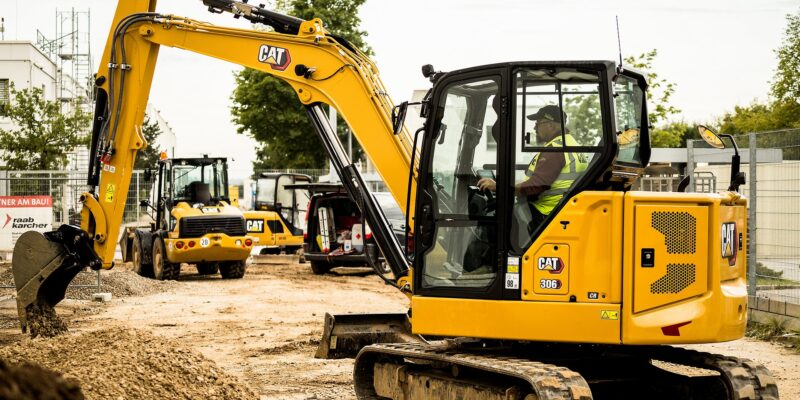In this blog post we’re going to focus on those who operate heavy machinery, safely and effectively building the world of tomorrow. These equipment experts are highly trained and skilled, combining a love of playing with big toys with safety and competency. Here’s how you can get started as an operating engineer!
Operating Engineers Need…
- Physical stamina
- Sound judgement
- Strong teamwork skills
- Hand-eye coordination
- Troubleshooting
How to Get Started
First, graduate high school or get your GED. Take any available vocational training classes. Read, watch videos, and take initiative to learn what you can. Get to know the basics of the most common heavy equipment.
Photo from Heavy Equipment Rentals
Next, many find some local classes and start attending school to become an operating engineer. However, schooling on your own isn’t always required!
Getting a job in a relevant field may earn you an apprenticeship or the employer may send you to school on their dime. Either way, jumping right into the job market can help you earn while you learn. Over time, you can work your way up to operating the machinery you prefer. Especially in construction, on-site experience is considered much more valuable than classroom time, so scoping out possible jobs first is a wise choice.
Getting an Operating Engineer Job
If you’re brand new to construction, you can start with a general contracting company. These companies might not require as much experience yet will allow you to learn different kinds of machinery in low-risk environments.
Operating unions can also help you get trained and employed in your local area through apprenticeship programs.
The Pros and Cons
As of May 2020, operating engineers make an average of $49,770/year. Some specialized operators, like pile driver operators, can make upwards of $63,370. Of course, apprentices earn less and someone with less experience has to work their way up over the years to be an operating engineer, so this income may be a few years off.
About 49,500 new operating engineer openings are projected each year coming up, with a steady growth over the next decade, so it’s a strong career choice with future prospects.
Operating engineer training, certifications, and union dues can cost thousands. Students may be able to get scholarships or employers may pay for necessary training, but those pursuing this type of work should keep potential costs in mind.
Operating engineers sometimes have to work on dangerous or extreme projects, with unpredictable weather or worksite conditions. Operating engineers need to remain alert and impervious to changing weather in order to operate their machines safely and effectively. This is why sound judgement is important when operating under pressure.
This job certainly isn’t for everyone! It requires a lot of training, on-site job experience, and strong interpersonal and critical thinking skills. We’re proud of all the operating engineers who keep the country going!
Need an operating engineer?
Steadfast is proud to source the very best operating engineers and we’re signatory with IUOE Local 542, so you know you can rely on our people. Give us a call today: 1-855-449-0777

